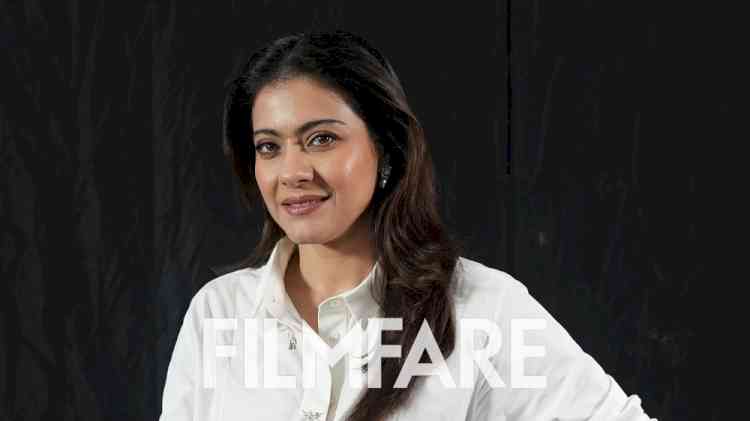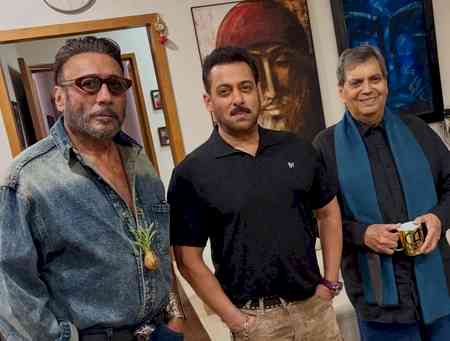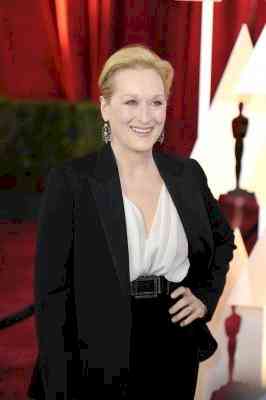Kajol Speaks Her Mind on Beauty Standards, Emotional Burnout & That One Rule She Won’t Break On In The Ring with Filmfare
Catch Kajol unfiltered like never before in a heartfelt conversation on In the Ring with Filmfare, now streaming on Filmfare’s YouTube Channel

From ruling the silver screen in the ’90s with iconic performances in Dilwale Dulhania Le Jayenge, Baazigar, Kuch Kuch Hota Hai, and more, Kajol remains one of Indian cinema’s most formidable talents. Her expressive eyes, instinctive performances, unmatched screen presence, and refusal to conform made her a trailblazer long before the term became trendy.
With a filmography that spans genres—from intense dramas to heartfelt rom-coms, Kajol continues to chart her path, entirely on her own terms. In the latest episode of In The Ring with Filmfare, she sits down with Jitesh Pillaai, Editor-In-Chief, Filmfare, for an unfiltered, honest conversation tracing her journey as an actor, mother, and woman constantly in the spotlight.
While discussing her recent project, Sarzameen, Kajol reflected on working alongside Ibrahim Ali Khan and the layered legacy he inherits, “The screen loves them, the camera loves both of them, and there’s definitely no two ways about it. But I think Ibrahim is a little quieter. At least he was around me when we were shooting. He was a little quieter, a little more subdued, or whatever. Or maybe he was in character. And I think Saif has a much larger personality in a persona, per se. I think they're both very, very different people.”
Speaking of early boundary setting, she recalls a pivotal moment while working on Dushman, a film that pushed her emotionally and creatively, “I take it as a policy that I don't do these two things on screen. I don't portray it, and I don't want to play it either. It's not something that I feel comfortable doing, and I don't think it's necessary for me to prove my acting prowess in that particular field. There are lots of other fields that I can, you know, kind of prove my worth. She (the director) was very clear that ‘I will completely take that into consideration and we will work around it.’”
Kajol also opened up about experiencing burnout at just 18, when the emotional weight of her roles began taking a toll, “There is only so much of a heart that you have. How much of it will you burst in the process of, you know, going in front of the camera? So I think there was that aspect of it. And I remember at the end of the film, I told my mom that I was done. At the tender age of 18, I'm burnt out. I've gone through burnout. Mom, I'm having a nervous breakdown.”
Reflecting on how she entered films in the first place, she recalls a piece of advice from her father Shomu Mukherjee that only made sense much later, “My dad actually warned me. He said, ‘You better be sure about what you want to do because once you put that makeup on, it's not going to come off.’ And I was what, 16 at that time. I was like, ‘What nonsense, Dad. You know, I'm an educated girl, I'm a today's woman, and if I choose to leave the films, I will leave the films, and I'll show you. If I choose to do something else, I will definitely be able to do it. There's no one who can keep me from doing what I want to do.’ And he was like, ‘Think about it. It's a known fact that once you get into the business, it's very hard to get out of it.’ And he was right.”
On feminism, Kajol offered a grounded, no-frills definition of empowerment, stating, “When we talk about feminism today, we yell and we kind of beat our chest and say that, ‘Oh, this is feminism, this is feminism.’ But actually, feminism is just being complete in who you are and doing exactly what you want to do without needing to bring anybody else. Yes, it's lovely to have a man around, and it's lovely to have a partner to help you and to share the load with, and whatever. But if you don't have one also, it does not make you less of a person—both ways, I would say, for the men and the women.”
Recalling what it was like to be directed by her husband, Ajay Devgn, Kajol expressed admiration for his focus and clarity, “He was actually so supremely confident and so organized. I always knew he would be a good director, but I didn't realize how much. I didn't realize he would be such an organized director. I think being a director also has a lot to do with organizing your thoughts and being able to put a schedule into place—to put that on camera. And he had that down pat from the first film itself, which is what I found amazing.”
On navigating social media scrutiny, body image, and evolving beauty standards, Kajol shared, “Well, it is tiring. I do think people who are not in the limelight have a lot more liberty than we do to be exactly who they want to be. I think it's everybody's personal journey to go under the knife or not go under the knife or do whatever they want to. I think it's everybody's personal choice, and that should be left to them—whether they are in the limelight or they aren't in the limelight. It is a personal choice as to, you know, what works for you and what doesn't work for you. And let me just clarify it—that it is not gender relevant. There are a lot of men who are doing it as well. In fact, equal amounts. And aging, as far as I'm concerned, is in the mind. I think it is something that... It's like the privilege of aging is that you can do it.”


 City Air News
City Air News 










